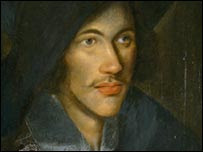Preface
Summary: Elie Wiesel, the author of Night, tells us readers about his decisions when he began writing and before Publishing "Night".
He questioned himself, asking, "Why did I write it?" , "Was it to leave behind a legacy of words, of memories, to help prevent history from repeating itself?"
Wiesel speaks of his foresight, of how he knew this moment would be judged in the future and he had to remember and bear witness. The power in this short preface, is amazing, Wiesels experience and eloquence in his writing brings images of the slaughter of the many innocents during the Holocaust. In his original rough draft he even had portions, which seemed excess and made the novel to long. His experiences, I think, would break down any person in todays society, so Elie Wiesels account is invaluable, because he had the strength to hold on and report to the world.
Quote:
"The witness has forced himself to testify. For the youth of today, for children who will be born tomorrow. He does not want his past to become their future."
Reaction:
Elie Wiesel again speaks about "bearing witness., and "testifying," his powerful belief in the future and dedication to the future generation was an obvious inspiration to him through his life and during his experiences of Auschwitz and the Holocaust.
This video tells the story of another Witness to the horrors of Auschwitz, she was one of the first to enter into its horrible campus.
Forward
Summary:
Mauriac never directly experienced the terror of the Holocaust, like us he was told secondhand. He tells us his wife witnessed them. He tells about his interview with a young Jewish man and how at the time Europe knew nothing of the Nazi extermination methods. And how the families being torn apart was hardly comprehendible to outsiders. He speaks of the dying children being fed to the gas-chambers, and crematoria. "I have thought of these children so many times!" Mauriac cites "The Diary of Anne Frank" and says readers of "Night" will have as numerous readers, and they will discover , how miraculously the child told their tale.
Quote:
"Let us try to imagine what goes on his ["the child"] mind as his eyes watch rings of black smoke unfurl in the sky, smoke that emanates from the furnaces into which his sister and his mother had been thrown..."
Reaction:
The hardest thing I find most difficult to imagine about the Holocaust is: how did the children manage to hold on? Obviously a great number didn't, but still the survivors of today were little more then 16 when entering the ghettos and camps where their childhood was stripped from them. Those who survive are invaluable to the present generation, they are a vast fountain of knowledge about the evils and dark side of humanity.

Link to Museum of Tolerance, where many children of the Holocaust are remembered


Kirk, Great job on your first blog post. You summarized all of the information presented in the Forward and Preface very well and even posted a video and picture. I found the story in the video to be very interesting. I agree with your reaction, especially when you mention how valuable Holocaust survivors are. This is especially true today when many of them are dying. We must never forget them and listen to what they remember from their horrible experiences.
ReplyDeleteGood job Kirk. I like how you state a quote and then note your detailed reaction to it. I also found the story in the video to be rather interesting. Good job with your first post.
ReplyDeleteI cried
ReplyDeleteThanks
Explain how Elie Wiesel makes sense of his survival?
ReplyDelete